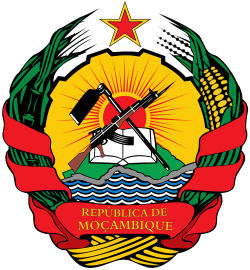| |||||||||||||||||||||||||
Presidential election | |||||||||||||||||||||||||
| |||||||||||||||||||||||||
This lists parties that won seats. See the complete results below. | |||||||||||||||||||||||||
Maps | |||||||||||||||||||||||||
| |||||||||||||||||||||||||
 |
|---|
| |
General elections were held in Mozambique between 27 and 29 October 1994 to elect a president and the Assembly of the Republic. It was the first time the country had had multi-party elections, [1] as previously FRELIMO had been the sole legal party. Nevertheless, FRELIMO maintained control of the country's political system, winning both elections. Voter turnout for the elections was 88%. [2]




